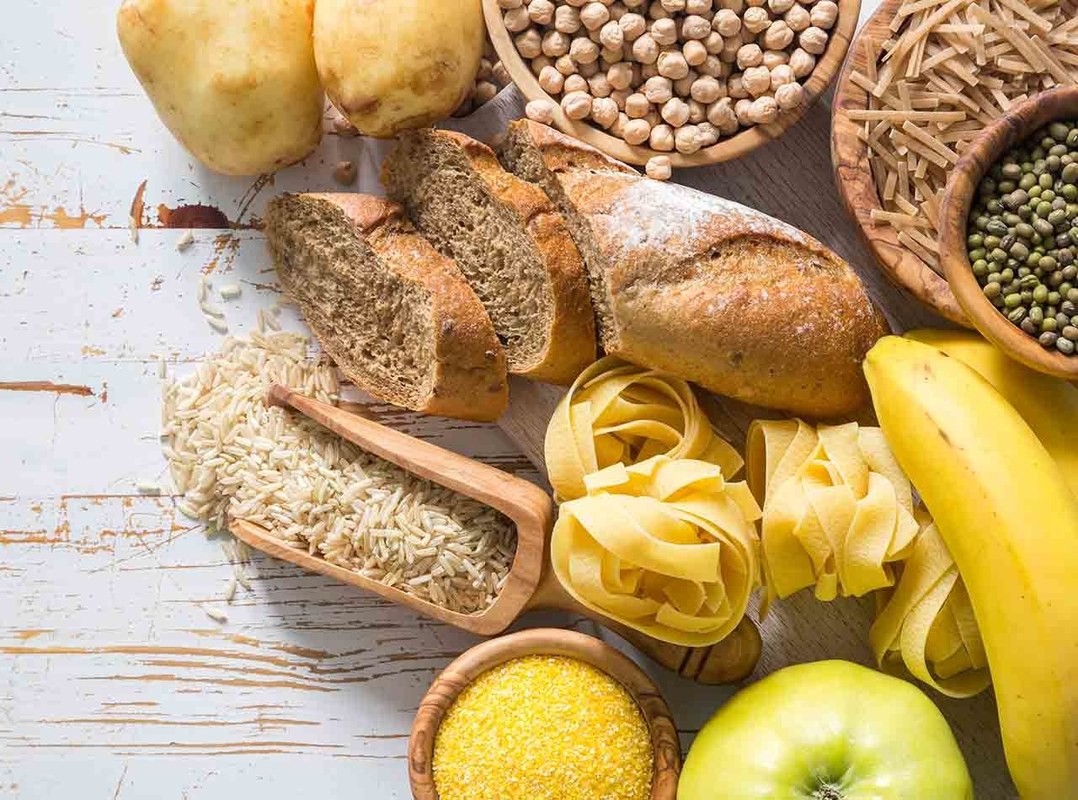|
Carbohydrates always occupy a special position for their important role in training and performance:
Glycogen, apart from being a muscle substrate also plays a critical role in supporting the muscle’s adaptation to training. Any recommendation on carbs intake should be done considering an athlete’s training/competition program and the importance of undertaking it with increased or decreased carb portions depending on the priority at hand-boosting the performance of high quality exercise versus advocating training adaptation. Due to the lack of exact information on substrata needs of different training sessions, proportions of carb requirements are planned mostly using guesswork along with existing information on consumer-based activity, heart-rate monitors and power meters. How Much Carbs Does an Athlete Need to Excel in His/her Performance Carbohydrate needed for performance is based on the athlete’s body size and the nature of the training/sport event. The timing of carbohydrate intake during the day and with respect to training can be altered to make carbs more available or less available. These also help to sail through intense workout sessions within a given period. In the same day, some other sessions might require less of carbohydrates while exercising to boost the training stimulus or adaptive response. Such reduced availability can be easily achieved by keeping two sessions in close succession to each other without time for refueling or also by decreasing total carbs intake. Once the carbs and energy content of a diet are calculated, neither the glycemic load or glycemic index of these carb-rich meals affect metabolic or performance outcomes of training. Although, studies do exist on the metabolic advantages of exercising with low carbohydrates availability, how they would contribute to performance outcomes are still unclear. How Does Decreased Availability of Carbs Affect Performance? Exhaustion of muscle glycogen can lead to fatigue while insufficient carbohydrate availability can affect performance-influencing factors such as pacing, fatigue, motor skill and concentration. The ideal way to prevent this is to balance the carb stores in the body with fuel demands of training/activity for optimal performance. Comments are closed.
|
AuthorDietitian & Nutritionist Dr. Nafeesa Imteyaz. ArchivesCategories |
- Home
- Written Testimonials
- Consult
- Clinics
- Blogs
-
Diet & Nutrition
- Diabetes Reversal
- IVF IUI not needed for PCOS PCOD Infertility
-
Medical Nutrition
>
-
Disease & Conditions
>
- Infertility | PCOS
- Diabetes Mellitus
- Cholesterol
- Hypothyroid
- Kidney Problems
- Hypertension
- Cardiovascular Diseases
- Liver Diseases
- Gastro intestinal disorder
- Cancer
- Metabolic Disorders
- Orthopedic Disorders
- Eating Disorders
- Dietary Recall
- Weight Record Filled By Clients
- Online Payment Transaction Details
- Online Clients Weight Check Form
- Our Program Package Service Charges
- Weight Record 2017 Clients
- Measurements sent by Clients
- Terms & Conditions Of Payment
- Thanks. Your Form is Submitted
- Video Testimonials
- Lifestyle & Wellness
- Lifestyle & Wellness Blog
- Allergy & Intolerance
- Weight Loss / Gain
- Weight Loss / Slimming Blog
-
Disease & Conditions
>
- Life Cycle Nutrition >
- Sports Nutrition >
- Integrity in Nutrition
- Knowledge Centre
© COPYRIGHT 2022. ALL RIGHTS RESERVED. FRST HEALTHCARE PVT LTD.
Dr. Nafeesa Imteyaz of First Eat Right clinic, is the Best Dietitian Nutritionist in Bangalore. Best Dietitian Nutritionist in Pune. Best Dietitian Nutritionist in Hyderabad. Best Dietitian Nutritionist in Chennai. Best Dietitian Nutritionist in Mumbai. Best Dietitian Nutritionist in Delhi. Best Dietitian Nutritionist in Kolkata.

